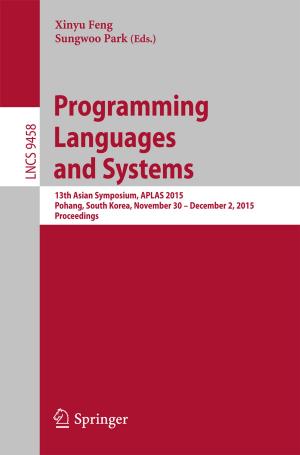Patterns of Treaty Interpretation as Anti-Fragmentation Tools
A Comparative Analysis with a Special Focus on the ECtHR, WTO and ICJ
Nonfiction, Reference & Language, Law, Reference, International| Author: | Liliana E. Popa | ISBN: | 9783319654881 |
| Publisher: | Springer International Publishing | Publication: | December 29, 2017 |
| Imprint: | Springer | Language: | English |
| Author: | Liliana E. Popa |
| ISBN: | 9783319654881 |
| Publisher: | Springer International Publishing |
| Publication: | December 29, 2017 |
| Imprint: | Springer |
| Language: | English |
This book investigates whether treaty interpretation at the ECtHR and WTO, which are sometimes perceived as promoting ‘self-contained’ regimes, could constitute a means for unifying international law, or, conversely, might exacerbate the fragmentation of international law. In this regard, the practice of the ICJ on treaty interpretation is used for comparison, since the ICJ has made the greatest contribution to the development and clarification of international law rules and principles. Providing a critical analysis of cases at the ICJ, ECtHR and WTO, both prior to and since the adoption of the 1969 Vienna Convention on the Law of Treaties, the book reveals how the ECtHR and WTO apply the general rules of treaty interpretation in patterns which are similar to those used by the ICJ to address difficulties in interpreting the text of treaties. Viewed in the light of the ECtHR’s and WTO’s interpretative practices, both the VCLT’s general rules of interpretation and the ICJ’s interpretative practice serve to counteract the fragmentation of international law.
This book investigates whether treaty interpretation at the ECtHR and WTO, which are sometimes perceived as promoting ‘self-contained’ regimes, could constitute a means for unifying international law, or, conversely, might exacerbate the fragmentation of international law. In this regard, the practice of the ICJ on treaty interpretation is used for comparison, since the ICJ has made the greatest contribution to the development and clarification of international law rules and principles. Providing a critical analysis of cases at the ICJ, ECtHR and WTO, both prior to and since the adoption of the 1969 Vienna Convention on the Law of Treaties, the book reveals how the ECtHR and WTO apply the general rules of treaty interpretation in patterns which are similar to those used by the ICJ to address difficulties in interpreting the text of treaties. Viewed in the light of the ECtHR’s and WTO’s interpretative practices, both the VCLT’s general rules of interpretation and the ICJ’s interpretative practice serve to counteract the fragmentation of international law.















